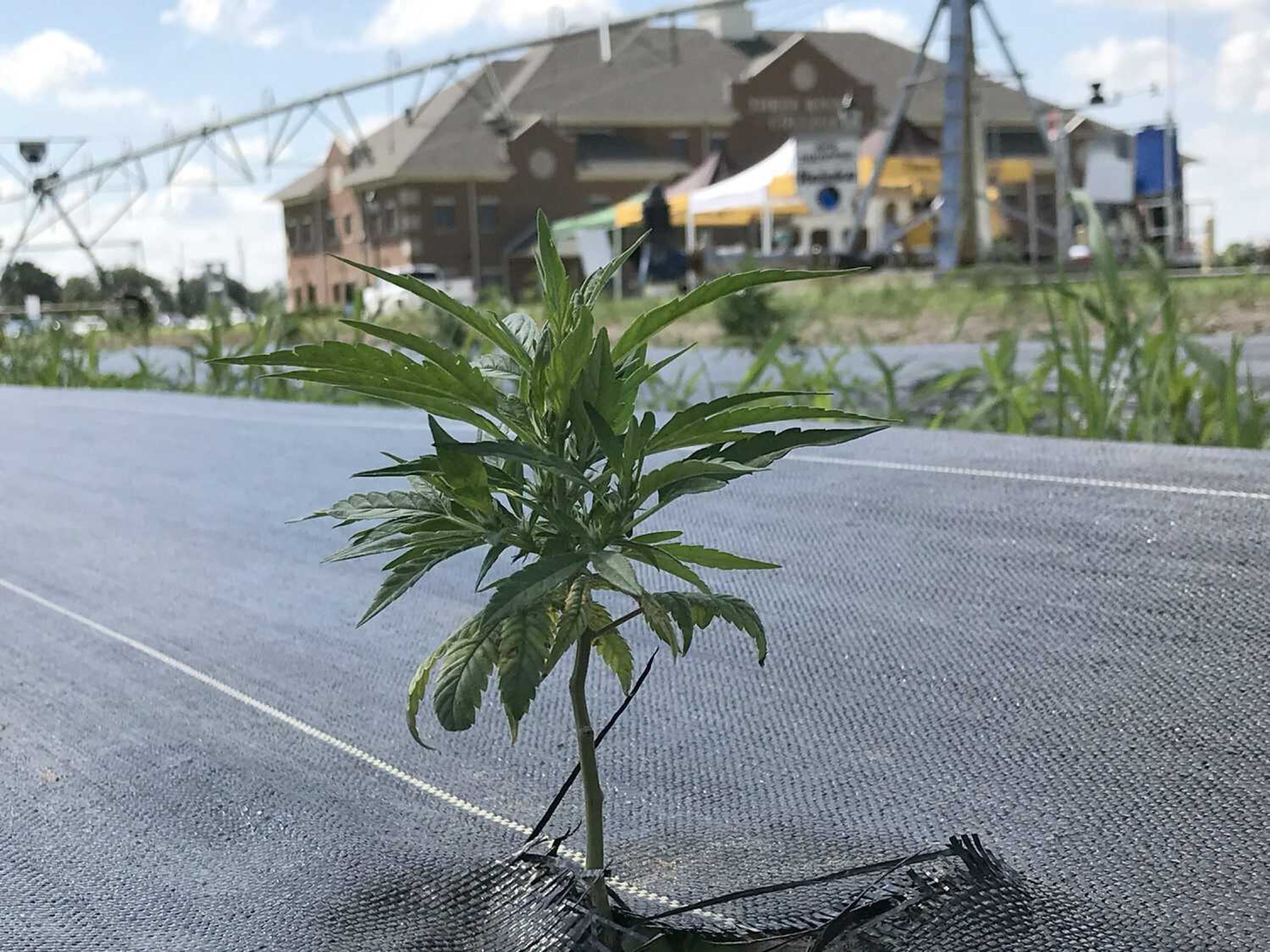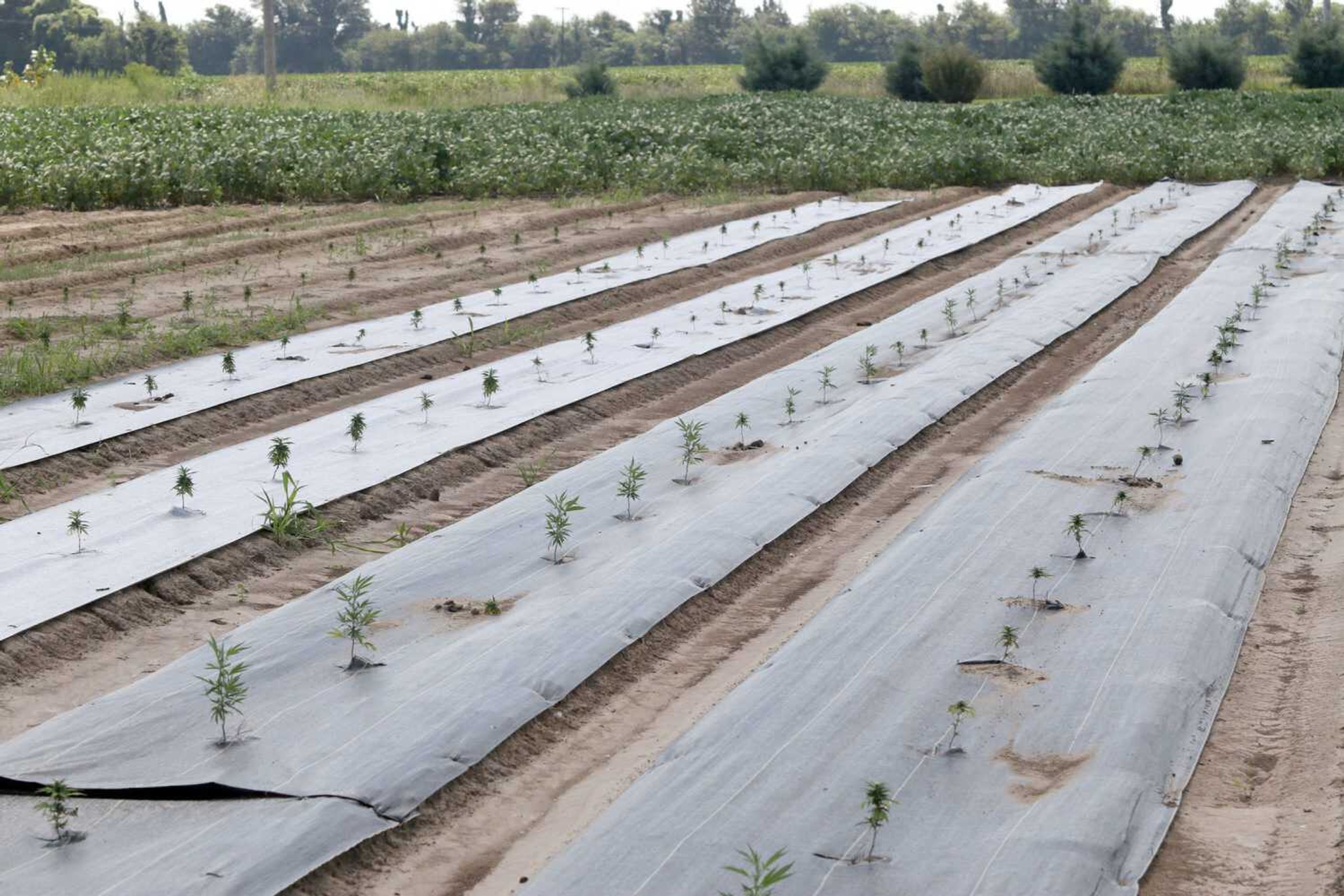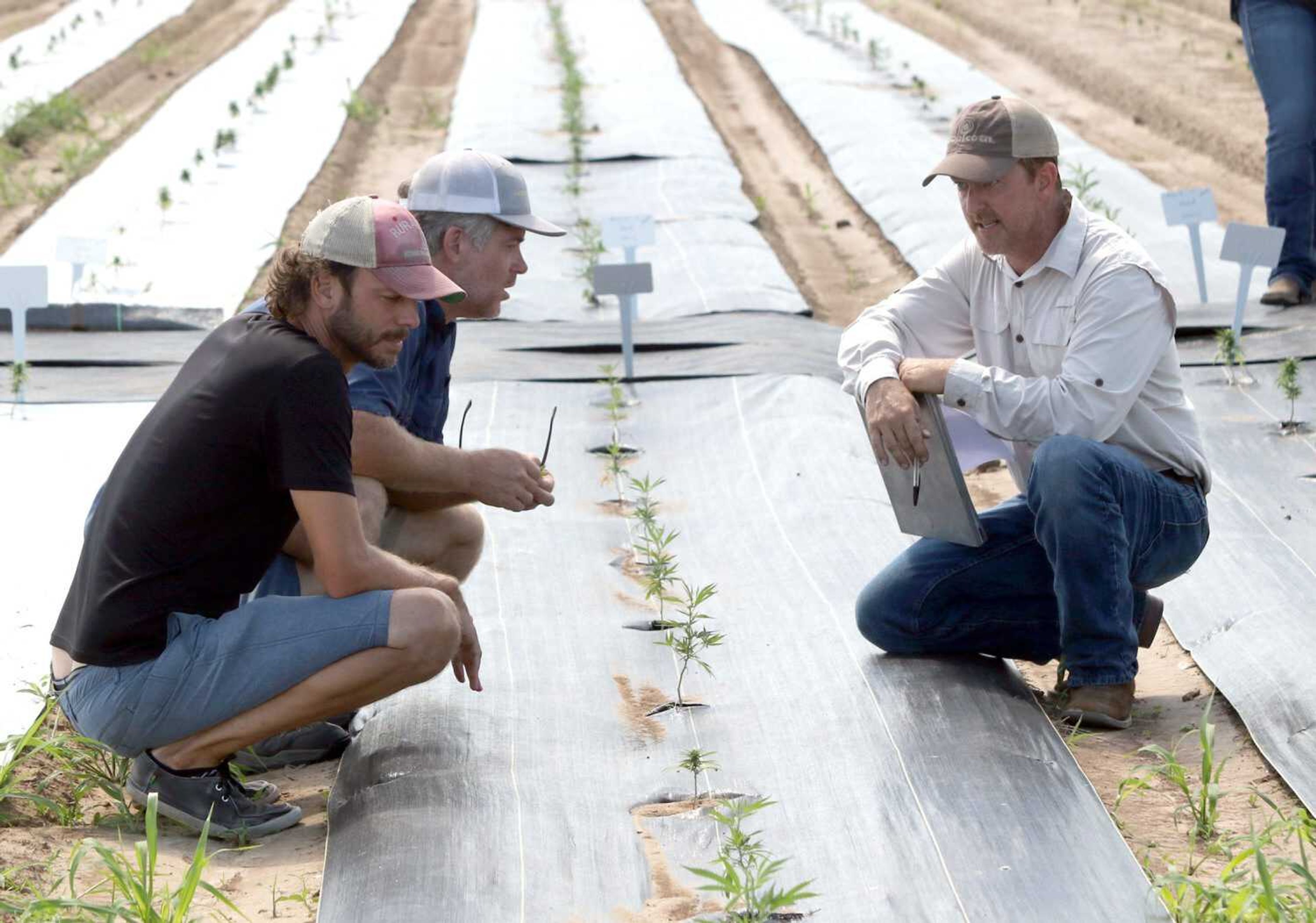Three Rivers in Sikeston growing industrial hemp to help local farmers
SIKESTON, Mo. -- Three Rivers College in Sikeston is taking part in an educational initiative growing industrial hemp in an effort to help local farmers who intend to grow the crop in the spring. "It is a really exciting time to be part of this project," Three Rivers College president Wes Payne said at a news conference Wednesday morning. ...
SIKESTON, Mo. -- Three Rivers College in Sikeston is taking part in an educational initiative growing industrial hemp in an effort to help local farmers who intend to grow the crop in the spring.
"It is a really exciting time to be part of this project," Three Rivers College president Wes Payne said at a news conference Wednesday morning. "As an educational institution serving Southeast Missouri, agriculture is a huge part of our economy, of our backbone, of our educational programs at the college."
Earlier this year, Missouri lawmakers dropped a program allowing hemp farming only on 10- to 50-acre plots and passed a law containing no acreage restrictions but requiring growers be licensed by the state Agriculture Department.
On June 24, Missouri Senate bill SB133 was signed into law allowing universities to begin growing the plant immediately to collect data on the new crop for farmers.
In essence, this allows Missouri universities and colleges the chance to start growing industrial hemp sooner -- because they don't have to register -- which in turn allows them to help educate area farmers before they plant their first industrial hemp cash crops next year.

"Our purpose of our ag program is to prepare tomorrow's farmers to be successful, and this is a huge part of teaching our students that you have find new things and innovative ways to make farming sustainable and long-term profitable," Payne said.
Local farmer Trey Wilson said he approached Three Rivers officials in April at the prospect of planting the crop that has been illegal for eight decades.
"From Day One, they wanted to make this a complete research project on how a farmer would do it in a real-world scenario," Wilson said.
Industrial hemp is a type of cannabis that doesn't have high levels of THC, the chemical that gets people high. It is a producer of CBD oil and is found in many products, from makeup to construction materials.
"Area farmers came to us asking if we could plant a few varieties of industrial hemp so they could see what its needs are before they're allowed to start growing it themselves next year," said Melissa Davis, chairwoman of the Department Communications, Agriculture, Languages and Fine Arts at Three Rivers. "This crop has the opportunity to be an economic boom for our area, so we were happy to help them learn more about it."

Laws allow the plants to produce no more than 0.3% THC concentration, or the crops could be destroyed. All of the plants -- which were donated by Independent Agriculture out of Paducah, Kentucky -- that were planted at Three Rivers are oil producers.
"We are offering (farmers) a living lab and offering our students that as well," Davis said. "We are going to be busing students here to let them see a crop they haven't seen before.
"The farmers here in this area are amazing," she said. "We couldn't have done it without them."
The college is studying two varieties of industrial hemp and using different methods of planting, growing and harvesting to see which methods work best. The crop will be harvested later this year.
"It's because of Three Rivers we are able to walk through this hemp field," Wilson said. "They are basically putting another tool in the farmer's toolbox. This is another crop that we can grow so we don't have to rely on the standard corn, wheat, beans, cotton and rice of this area."
Associated Press contributed to this story.
Do you crave business news? Check out B Magazine, and the B Magazine email newsletter. Check it out at www.semissourian.com/newsletters to find out more.
Connect with the Southeast Missourian Newsroom:
For corrections to this story or other insights for the editor, click here. To submit a letter to the editor, click here. To learn about the Southeast Missourian’s AI Policy, click here.






